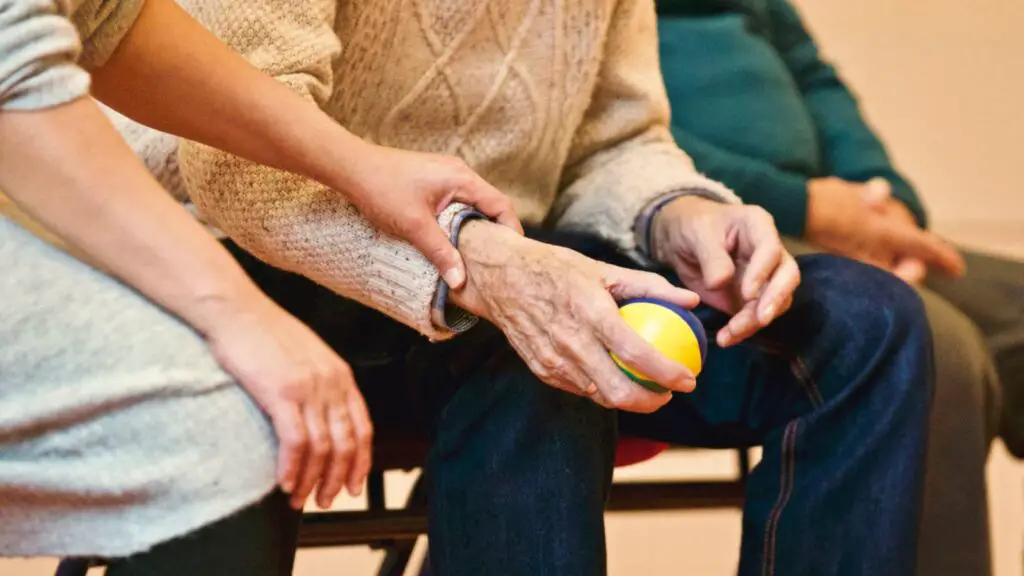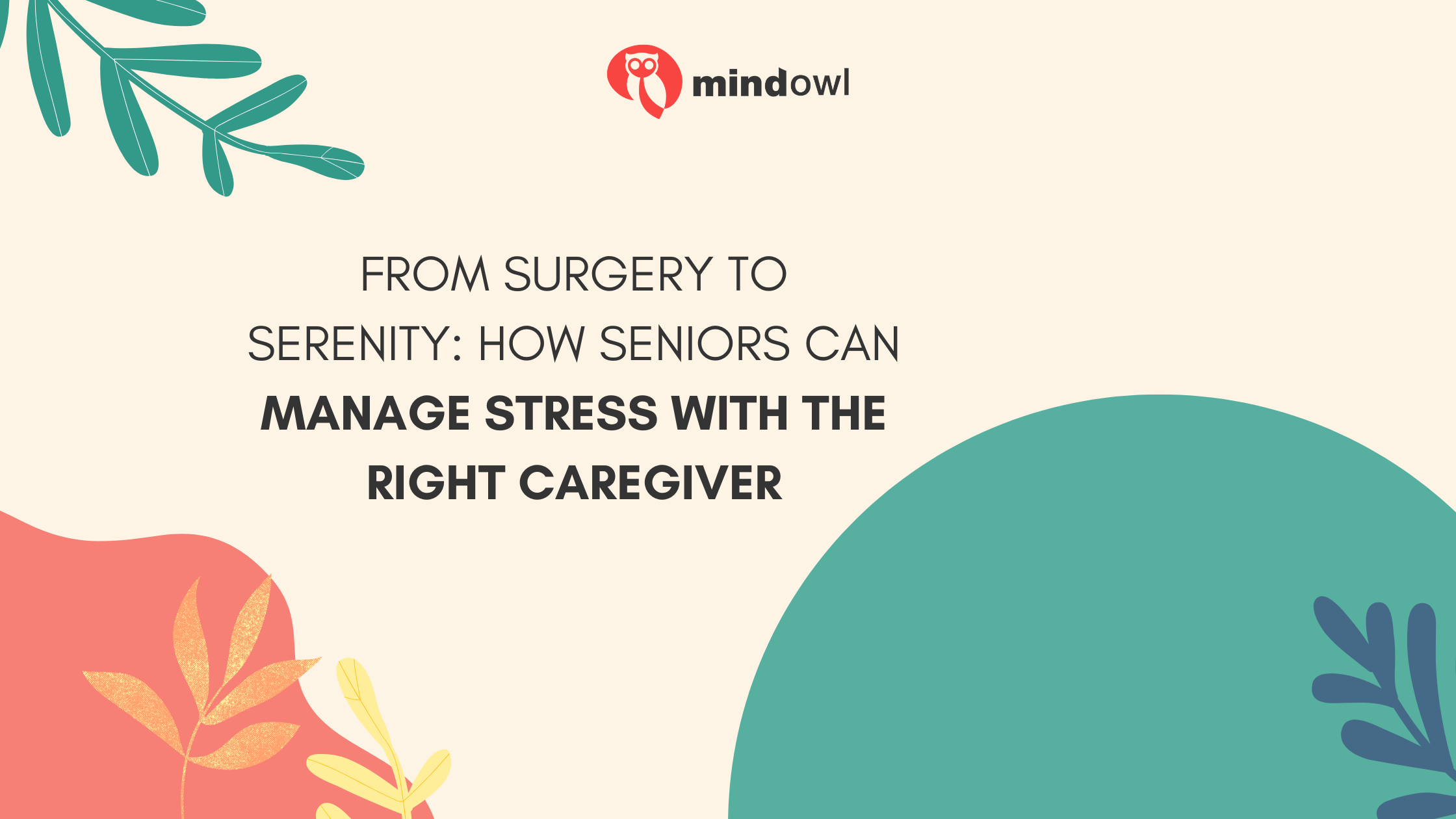Undergoing orthopedic surgery can be a life-changing event for seniors, offering the promise of improved mobility and quality of life. However, the recovery process can also bring a range of stressors, including physical discomfort, anxiety about healing, and adjustments to new limitations. Effective stress management is crucial not only for emotional well-being but also for a successful recovery. One key factor that can significantly influence a senior’s ability to cope with post-surgical stress is the support of the right caregiver. This article explores how seniors can manage stress during their recovery journey, highlighting the importance of a compassionate caregiver.
Understanding the Impact of Stress Post-Surgery
After orthopedic surgery, seniors may face numerous stressors that can hinder their recovery. Common issues include pain management, mobility challenges, and concerns about regaining independence. These stressors can lead to feelings of anxiety, depression, and frustration, making recovery even more difficult. According to the orthopedics in Wayne, NJ, excellent care is built on strong doctor-patient relationships, which can help ease patients’ fears and foster a more positive recovery experience.
Moreover, unmanaged stress can have physical consequences, such as increased blood pressure and weakened immune response, further complicating recovery. Understanding the impact of stress is the first step toward developing effective coping strategies that can lead to a smoother recovery process.

The Role of the Right Caregiver
The choice of caregiver can make a significant difference in a senior’s post-surgery recovery experience. The right caregiver should possess several key characteristics that contribute to effective stress management:
- Compassion and Patience: A caregiver who understands the emotional toll of surgery can provide comfort and reassurance during challenging moments.
- Experience in Orthopedic Care: Knowledge of orthopedic recovery processes allows caregivers to provide specialized support, ensuring seniors receive appropriate care and assistance.
- Effective Communication Skills: A caregiver who can communicate openly and clearly can help seniors feel understood and less anxious about their recovery.
The right caregiver plays a vital role in mitigating stress levels. They provide companionship, actively listen to concerns, and help seniors navigate their recovery journey. For those interested in learning more about the five-step approach to care by Right at Home Canada, it’s essential to explore how these strategies can enhance the caregiving experience.
Five-Step Approach to Stress Management with a Caregiver
Managing stress effectively requires a strategic approach. Here are five key steps that caregivers can take to help seniors manage stress during their recovery:
- Creating a Personalized Care Plan: Every senior’s recovery needs are unique. A tailored care plan should assess individual preferences, health conditions, and mobility levels to ensure appropriate support. This personalized approach fosters a sense of control and security, reducing anxiety.
- Providing Emotional Support: Emotional well-being is just as important as physical recovery. Caregivers should offer companionship, engage in meaningful conversations, and be present during difficult times. Active listening can alleviate feelings of loneliness and help seniors express their concerns and fears.
- Assisting with Physical Tasks: After surgery, many seniors struggle with everyday activities, which can lead to frustration and stress. Caregivers should assist with tasks such as bathing, dressing, meal preparation, and mobility to help seniors maintain a sense of independence while ensuring their safety.
- Monitoring Health and Medications: Keeping track of medications and health metrics is crucial during recovery. Caregivers should ensure seniors take their medications as prescribed and monitor for any changes in their condition. This proactive approach can help alleviate anxiety about potential complications.
- Encouraging Healthy Lifestyle Choices: Promoting relaxation techniques, gentle exercises, and nutritious meals can have a positive impact on both physical and mental health. Caregivers can introduce activities such as light stretching, mindfulness exercises, or engaging in hobbies that bring joy and relaxation.
Additional Stress Management Techniques for Seniors
In addition to the support provided by caregivers, seniors can adopt independent stress relief techniques to enhance their recovery experience. Mindfulness and meditation are effective methods for promoting relaxation and reducing anxiety. Gentle stretching or yoga can improve flexibility and alleviate physical tension.
Engaging in hobbies, such as gardening, reading, or crafting, can provide a creative outlet and foster a sense of accomplishment. Additionally, maintaining social connections with family and friends can combat feelings of isolation, providing emotional support during recovery.
Creating a supportive environment is vital. A caregiver who encourages these activities can help seniors feel more empowered and less stressed, contributing to a smoother recovery process.
Conclusion
Managing stress after orthopedic surgery is crucial for seniors on their recovery journey. By recognizing the impact of stress and the importance of the right caregiver, families can make informed decisions that promote a positive healing experience. The five-step approach to care outlined in this article offers a comprehensive framework for stress management, emphasizing the critical role caregivers play in supporting seniors.
As families consider their loved ones’ recovery options, they should prioritize finding a compassionate caregiver who can provide the necessary support and encouragement. With the right care and stress management techniques, seniors can transition from surgery to serenity, enjoying a more comfortable and fulfilling recovery.
MindOwl Founder – My own struggles in life have led me to this path of understanding the human condition. I graduated with a bachelor’s degree in philosophy before completing a master’s degree in psychology at Regent’s University London. I then completed a postgraduate diploma in philosophical counselling before being trained in ACT (Acceptance and commitment therapy).
I’ve spent the last eight years studying the encounter of meditative practices with modern psychology.

